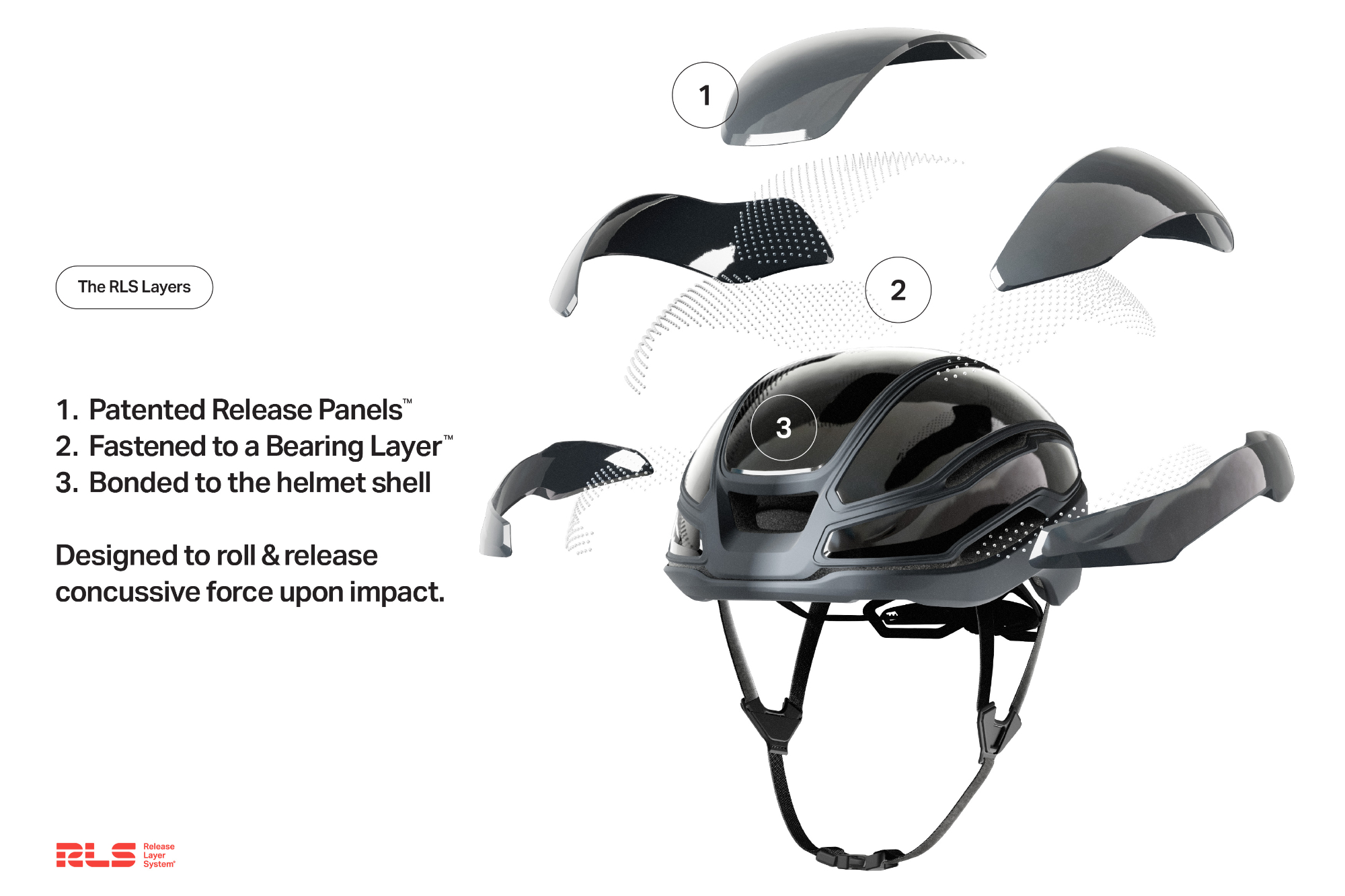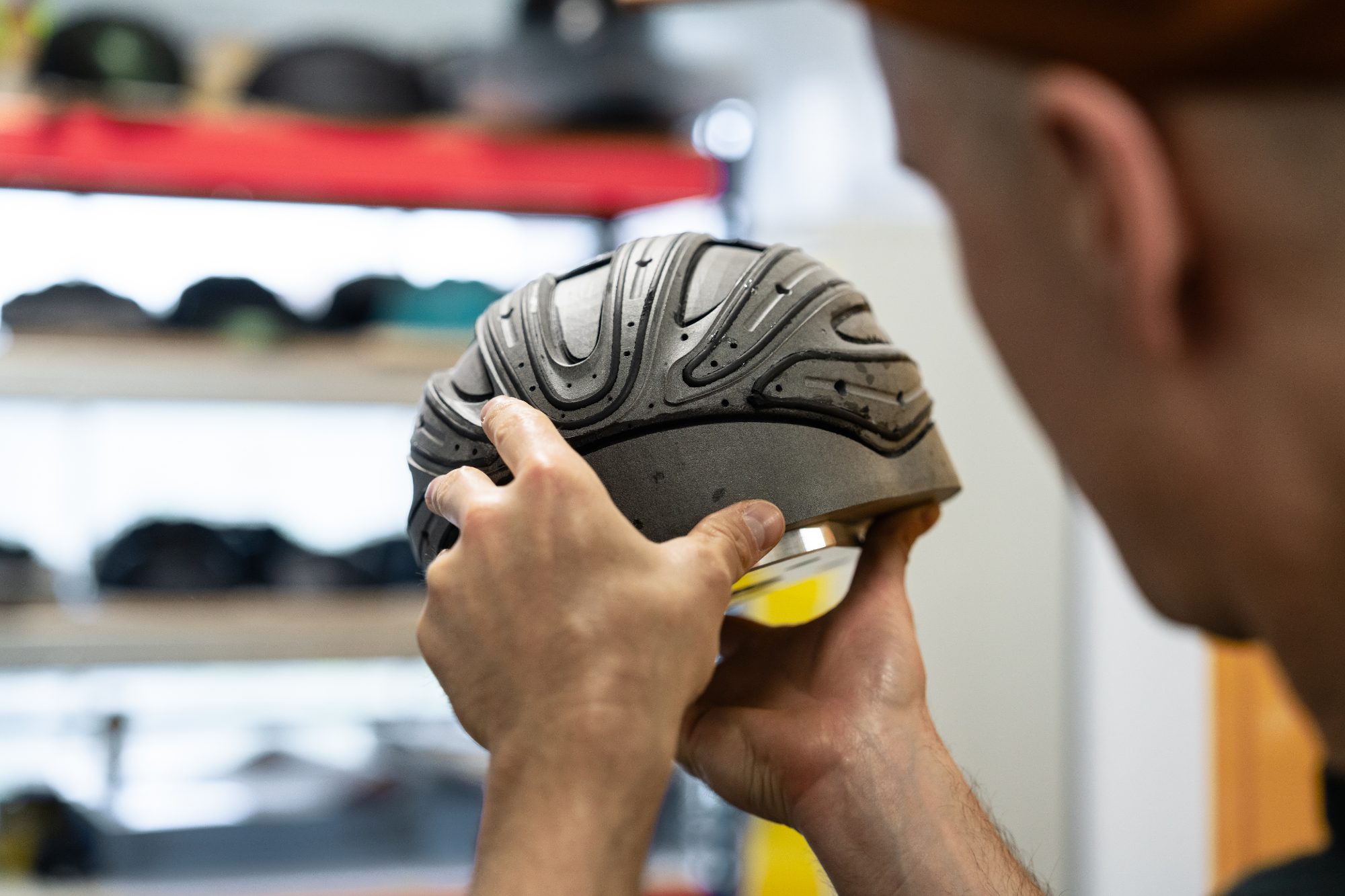Lessening the effect of rotational forces during impact has long been the goal of bicycle helmet manufacturers. Traditionally bike helmets were designed to protect against linear impact but with most accidents generating considerably rotational forces, they still left the brain susceptible to concussion and other traumatic brain injuries.
Technologies such as Mips, which allow the helmet to rotate independently from the skull, are now commonplace, but a London-based company believes its created a superior system that will significantly reduce the number of concussions compared to conventional helmets.
(Image credit: RLS)
Called Release Layer System of RLS, it’s described as having three stages that occur during an accident: react, roll and release.
The patented technology uses panels on the helmet exterior that roll and release during an impact, thus dissipating the rotational forces that are proven to cause brain injuries. The panels are connected to a bearing layer that’s designed to react and activate when they detect a “significant impact force”. The creators say this happens “in a matter of milliseconds”, with the bearings free to roll in any direction, which allows the panel to release,’redirecting concussive forces away from the brain’.
By locating the panels on the outside of the helmet, compared to a Mips system which is typically located in the inside, RLS delivers a far greater range of motion.

(Image credit: RLS)
The result is a helmet that independent testers have proven to be four times more effective at reducing concussions than a conventional helmet. The tests have been conducted by ICUBE at the University of Strasbourg, who found that helmets with the Release Layer System reduced Peak Rotational Velocity by an average of 57% – 66% across different impact locations, compared to the same helmets without RLS. This corresponds to a 68% – 86% reduction in the probability of brain injury as estimated by the Abbreviated Injury Scale – Level 2.

(Image credit: RLS)
RLS is the brainchild of Jamie Cook. The inventor and company founder began to develop the idea while working on HEXR, a 3D printed custom helmet company. One day the outer panels of a colleague’s helmet were released after an accident and the concept was born. Cook put together a team to explore releasing panels as a way of reducing rotational forces, with the lightweight bearings between the shells one of its key discoveries.
Now a completed system manufactured in London, RLS will first be available in the Canyon Deflectr RLS helmet, due for release this autumn, with more brands and partners set to follow.
“RLS is first and foremost designed to protect what makes you, you”, Cook. “Your memories, your personality, your loves and hates are all in the most fascinating part of the body – the brain – and RLS has been developed to protect what matters most. We are incredibly excited to launch this technology today, especially with our launch partners at Canyon as we share a passion for safety and disruption technology.”
